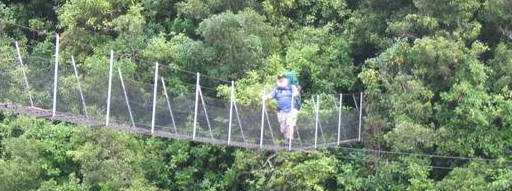New Zealand, unlike most countries, is a country where you cannot, save in exceptional circumstances, sue for damages as a result of an accident or mishap that has left you disabled in some way.
Instead, you can apply to the Accident Compensation Commission for the cost of treatment, or for an allowance or lump sum based on the nature of any permanent disability you might have suffered. This is funded by levies on employers and the self-employed, and by taxing items such as motor vehicle registration, alcohol, etc where the item concerned is a frequent element in compensation claims.
Included in the list of disabling mishaps is sexual abuse. This initially coincided with and funded the rise of a politically driven theory that sexual abuse was at the root of all psychological problems, and that the perpetrator of the abuse was nearly always a male in close relationship.
If the abuse could not be recalled, it must have happened nevertheless and it was just a matter of finding it in the depths of the psyche.
Persons diagnosed as having been sexually abused were then compensated, initially with a substantial lump sum, and later, when spiralling claims threatened to bankrupt the entire ACC fund, with six months of paid psychotherapy.
Researchers in New Zealand asked a group of several hundred seventh form girls if they had ever been touched by a member of the opposite sex in a way that they didn't like. This covered everything from gang rape to pushing an unwanted hand away when a petting session went further than they were comfortable with. (These young women were typically about 16-18 years old, and still at school because they were on the whole more academically inclined than their peers and heading for tertiary education at university or elsewhere.) About a third of them replied that they had.
This was parlayed into a claim that 1/3 of New Zealand women had been sexually abused before they were 18, by somebody known to them, and formed the basis for a huge national fundraising telethon dedicated to "child mental health".
It created the myth of a nation of child sexual abusers, and reconstructed male sexual activity as essentially predatory and abusive, even (in fact, especially) within the immediate family.
It was a political mistressstroke.
Worse than that, a generation of fathers and grandfathers became afraid to display any kind of physical affection to their children and grandchildren lest it be misconstrued. Sceptical professionals ran for cover. Any protest was professional suicide. It was construed as evidence they were themselves supporting child abusers, if not closet abusers themselves. The clinical psychologist partner of a prominent judge was on record in the NZ Herald newspaper as saying it was better that ten innocent men went to jail than that one abuser escape.
Males evacuated caring professions such as primary teaching and early childhood care at a speed that far exceeded those later taking the fast way out of the twin towers.
Divorce lawyers made hay with allegations of child sexual abuse directed at male parents. The more relaxed rules of evidence in the Family Court and the absolute need under any conceivable circumstance to keep children "safe" from their predatory fathers, uncles, grandfathers, stepfathers and so on meant that just about any unsubstantiated allegation was sufficient to remove children for months at a time from access to their father. Separated fathers were loaded at work and socially and in their families with unproven and unprovable allegations of paedophilia and a generous helping of "Where there's smoke there's fire" philosophy.
Male teachers in preschool and junior school were no longer able to hug a distressed child without placing their career in jeopardy.
After all, with about one man in three by implication a sexual abuser, you couldn't afford to take risks. Sexual abuse, according to current theory, was responsible for nearly all psychological dysfunction and the damage was held to be permanent. The "safety" of the child was paramount.
Even if you couldn't remember anything remotely resembling sexual abuse, it must have happened and techniques for bringing it to the surface multiplied. In effect, false memories were being created and implanted by the therapist, and have subsequently proved extremely difficult to remove, if a therapist could be found who was interested in doing so.
This was the climate in which the raids and subsequent charges against Centrepoint Community residents took place, in which the Christchurch creche case was born, in which Felicity Goodyear found the courage and integrity to challenge these assumptions in her book, First Do No Harm: The Sexual Abuse Industry, and which prompted the series of essays in this section of my website.
